In the quiet hum of Silicon Valley, in the radiant glow of millions of computer screens worldwide, stories of innovation, passion, and resilience come to life. These are not the tales of kings and queens or some magical beings. These stories are of the millions of dreamers, coders, and entrepreneurs who wanted to shape the future of the world, and they did! This story is about the top computing companies that changed the world with the software they built.
Imagine a world without the convenience of a digital handshake, where a simple message couldn’t glide seamlessly through the air, and where vast knowledge wasn’t at our fingertips. Hard to fathom, isn’t it? This was our world, a world not so long ago before the wizards behind the curtain weaved their magic. These wizards weren’t from mythical lands but from garages, dorm rooms, and small rented offices. Their wands were keyboards, their spells were lines of code, and their quest was to craft a digitized realm of limitless potential. They builtthe software companies that changed the way we live, affecting every aspect of our daily life.
Join me as we explore the stories of these pioneers – the 25 top software companies that not only changed the business realm but also etched indelible marks on the canvas of human civilization.
Table of Contents
The Software companies that changed the world
Microsoft Corporation
Category: Technology & software

In the bustling 70s, while disco lights flashed and bell bottoms swayed, two visionaries, Bill Gates and Paul Allen, founded Microsoft on April 4, 1975. But it wasn’t about the fashion or the music; it was about reshaping the future. Microsoft’s influence is omnipresent, making personal computers a household item with their iconic Windows operating system.
Remember typing your first document on Microsoft Word or crafting a PowerPoint presentation? These are just slivers of the mammoth impact of Microsoft’s Office suite, which has redefined our work and collaborations.
Beyond that, businesses today leverage Azure, Microsoft’s cloud solution, underpinning innovations and operations across industries. And with acquisitions like LinkedIn, Microsoft doesn’t just impact our professional tools, but also our professional networks.
If we’re discussing software companies that changed the way we live and work, it’s impossible to look beyond the giant called Microsoft.
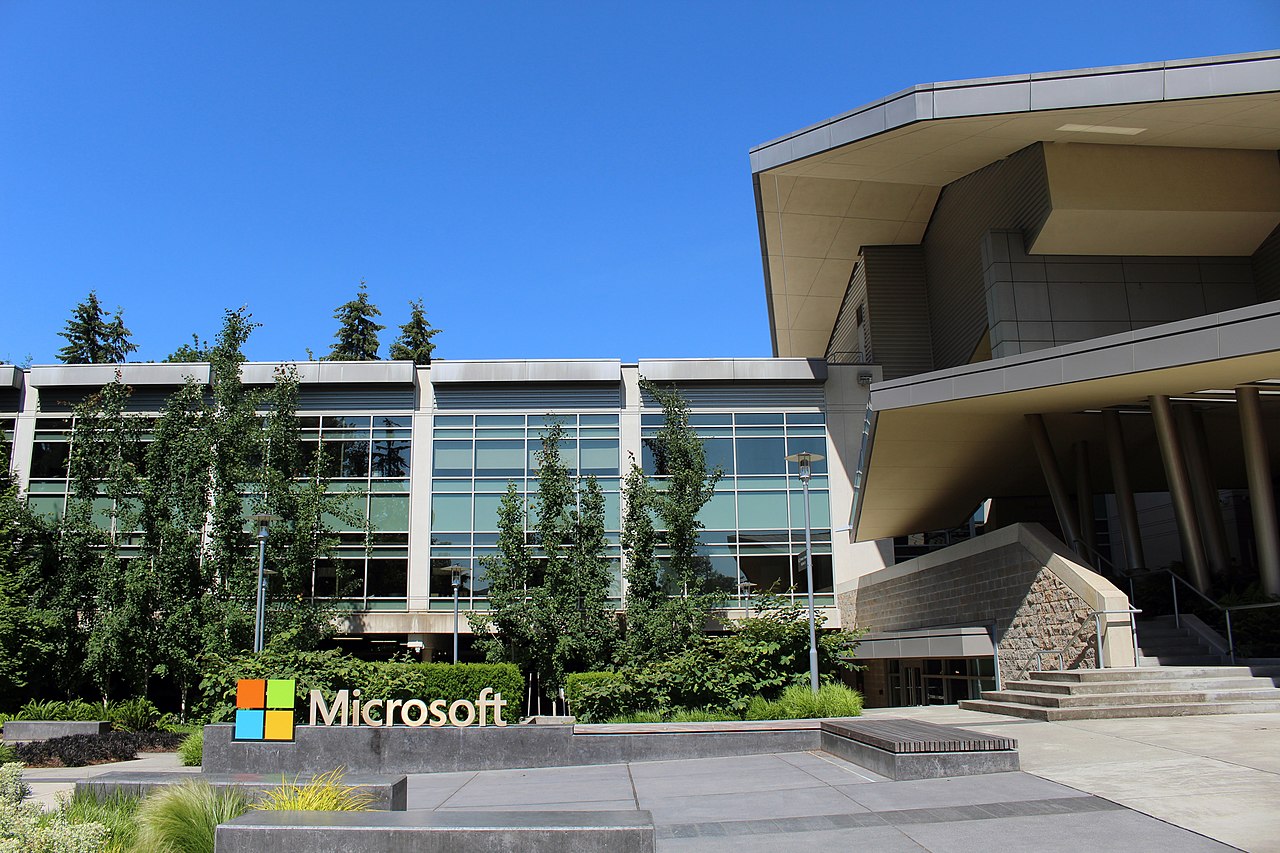
Key facts
- Founded: Microsoft was founded on April 4, 1975 by Bill Gates and Paul Allen.
- Impact: Microsoft has significantly impacted our lives by making personal computing accessible to the masses, revolutionizing the way we work with productivity tools like Microsoft Office, and transforming businesses with its cloud platform, Azure.
- Famous Brands/Products: Some of Microsoft’s famous brands/products include Windows (operating system for personal computers), Microsoft Office (suite of productivity software), Azure (cloud computing and services platform), LinkedIn (professional networking platform), and GitHub (a web-based platform for version control and collaboration for software development).
- Website: Microsoft.com
Apple Inc.
Category: Consumer electronics

In a garage in 1976, amidst the echoes of a transformative era, a revolution was quietly brewing. The masterminds, Steve Jobs, Steve Wozniak, and Ronald Wayne, embarked on a journey to carve out Apple, a brand that would seamlessly stitch technology into our daily tapestry. The shiny allure of the Apple logo isn’t just about top-notch devices, but a testament to innovation that continually pushes boundaries. Think about the first time you unboxed an iPhone, felt its weight, its promise, or tuned into your favorite jam on an iPod, a world of music resting within a pocket-sized marvel.
Apple’s genius doesn’t rest solely on its iconic hardware. Its strength lies in the symphony it crafts between hardware and software. Dive into the fluid realms of iOS or macOS, and you’re treated to an experience that’s both robust and intuitive. Each application, whether it’s Safari ushering in the vast expanse of the web, Pages turning your thoughts into words, or Final Cut Pro crafting stories in frames, is a nod to Apple’s commitment: making technology not just accessible but profoundly personal. In the Apple universe, innovation is not a mere buzzword; it’s an ethos, shaping our digital narrative one device, one software, at a time.
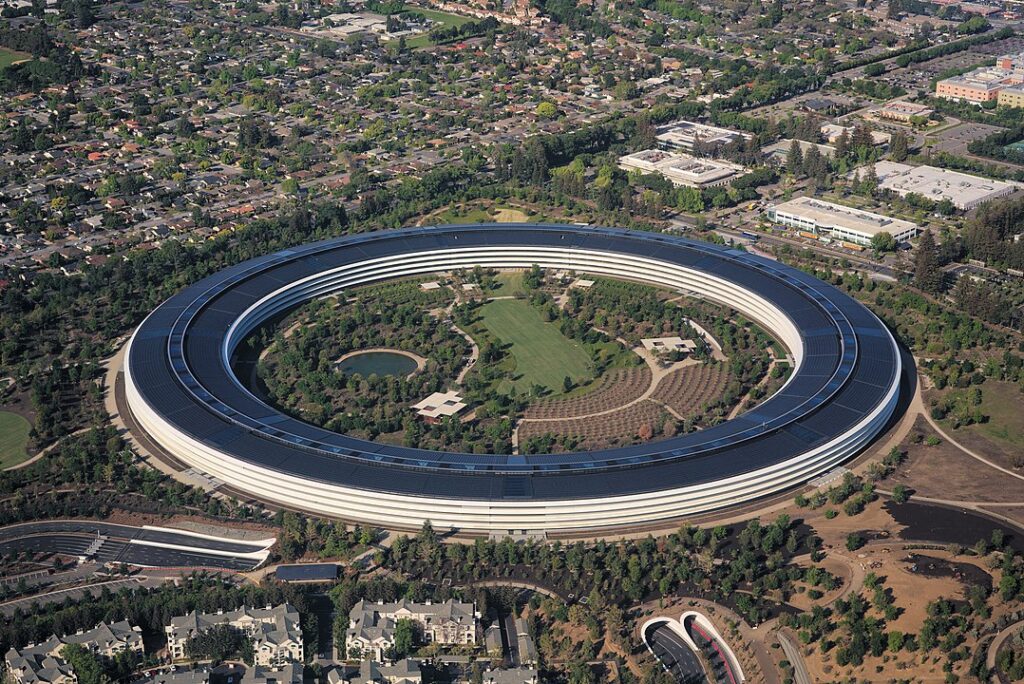
Apple Park, the corporate headquarters of Apple Inc.
Key Facts:
- Founded: Apple was founded on April 1, 1976 by Steve Jobs, Steve Wozniak, and Ronald Wayne.
- Impact: Apple has changed the way we live by introducing us to a mobile lifestyle with the iPhone, revolutionizing music consumption with iTunes and iPod, and bringing high-quality design and user-friendly interfaces to consumer electronics2. Apple Inc. has not only produced iconic hardware but also developed a suite of powerful software to seamlessly complement and power its hardware innovations.
- Famous Brands/Products: Some of Apple’s famous brands/products include iOS (mobile operating system for iPhone and iPad), macOS (operating system for Mac computers), watchOS (operating system for Apple Watch), tvOS (operating system for Apple TV), iTunes (now replaced by Apple Music) (media player and online media store), Safari (web browser), Pages (word processing software), Numbers (spreadsheet software), Keynote (presentation software), and Final Cut Pro (professional video editing software).
- Website: Apple.com
Linux Foundation
Category: Open-source software consortium

As the dawn of the 21st century approached, two collaborative forces – Open Source Development Labs and Free Standards Group – merged, unveiling the Linux Foundation in 2000. This wasn’t just another tech consortium; it was a manifesto for a democratized digital future.
Ever used a smartphone, engaged with a server, or accessed a supercomputer? You’ve likely brushed up against the innovations fostered by the Linux Foundation. Their philosophy is strikingly simple and revolutionary: why limit creation to a few when you can open the gates to everyone? By championing open-source projects, the Linux Foundation has given a playground to developers worldwide, cultivating software that’s as diverse as its contributors.
From the renowned Linux operating system to countless other open-source tools, their footprint is ubiquitous. It’s not about code, but about community, where every contributor has a voice. In the sprawling realm of technology, the Linux Foundation stands as a testament to the power of collaboration.
Key Facts
- Founded: The Linux Foundation was formed in 2000 as a merger between Open Source Development Labs and Free Standards Group.
- Impact: The Linux Foundation has democratized software development by fostering an open-source culture where anyone can contribute. This has led to the creation of robust and secure software systems that are used in everything from servers to smartphones.
- Famous Brands/Products: Some of the Linux Foundation’s famous brands/products include Linux (an open-source operating system) and various open-source software projects.
- Website: linuxfoundation.org
Oracle Corporation
Category: Enterprise software

Amid the revolutionary fervor of the 1970s, there emerged a trio of technologists – Larry Ellison, Bob Miner, and Ed Oates. Their shared vision? To create a blueprint for the world of enterprise computing. On June 16, 1977, Software Development Laboratories (SDL) was born, a venture that would evolve into the titan we now recognize as Oracle Corporation. While disco balls rotated in dance halls, Oracle embarked on a different kind of spin, one that wove intricate webs of data, enabling businesses to scale, adapt, and flourish.
Fast forward, and Oracle’s legacy is unmistakably clear in the backbone of global enterprises. Their database systems didn’t just serve as tools; they transformed into the very heartbeats of organizations, pulsating with information, insights, and innovations. Whether it’s the foundational Oracle Database or their visionary cloud solutions, Oracle has consistently remained at the forefront, melding the intricate with the intuitive. In an era where data reigns supreme, Oracle stands as an indomitable beacon, illuminating the path from raw bytes to refined business brilliance.
Key Facts
- Founded: Oracle was founded on June 16, 1977 by Larry Ellison, Bob Miner, and Ed Oates under the name Software Development Laboratories (SDL).
- Impact: Oracle’s database technologies have become an industry standard for large enterprises, which has changed how businesses operate by providing them with efficient ways to store, retrieve, and analyze data.
- Famous Brands/Products: Some of Oracle’s famous brands/products include Oracle Database (a database management system), Oracle Cloud (a cloud computing and services platform), and various enterprise software products.
- Website: oracle.com
Google (Alphabet Inc.)
Category: Internet services & products

The year 1998 marked a pivotal turn in the digital age. Two Stanford grads, Larry Page and Sergey Brin, set out to organize the world’s information, giving birth to Google Search. Yet, this was merely the prologue to an epic tale. The duo’s brainchild quickly morphed from a fledgling search engine into a global behemoth, becoming synonymous with online exploration. Today, whenever curiosity strikes or a question dangles at the tip of our tongues, we instinctively turn to Google, making it our gateway to the vast universe of the internet.
Google’s repertoire, however, extends beyond just search. It’s the invisible co-pilot guiding us through city lanes with Maps, the handy postman sorting our emails in Gmail, and the ever-watchful gatekeeper shielding our devices through Android OS. Chrome reshaped our web journeys, YouTube became our universal stage, and with innovations like Google Drive, collaboration found a new digital playground. In stitching together these myriad digital experiences, Google has intertwined itself with our daily lives, ensuring every click, search, and swipe leaves a trace of its indelible impact.
Key Facts
- Founded: Google was officially launched in 1998 by Larry Page and Sergey Brin to market Google Search.
- Impact: Google has transformed our lives in numerous ways. It has made information universally accessible through its search engine, changed the way we navigate with Google Maps, revolutionized email communication with Gmail, and made a wealth of information available at our fingertips. It has changed navigation with Maps, revolutionized email with Gmail, changed browsing the internet with Google Chrome and powers billions of mobile phones with the Android OS.
- Famous Brands/Products: Some of Google’s famous brands/products include Google Search (leading search engine), Google Maps (mapping and navigation service), Gmail (email service), YouTube (video-sharing platform), Android OS (mobile operating system), Google Chrome (web browser), Google Drive (cloud storage and collaboration tools), and Bard (AI language model and AI offering).
- Website: google.com
Meta Platforms, Inc. (Formerly Facebook, Inc.)
Category: Social media

In the early 2000s, college dorm rooms buzzed with the usual chatter, midnight oil burning, and dreams taking shape. One such dream began in Harvard’s hallowed halls when Mark Zuckerberg, alongside Eduardo Saverin, Andrew McCollum, Dustin Moskovitz, and Chris Hughes, coded a platform initially meant just for campus connections. Little did the world know that this humble project, Facebook, was destined to redefine human interaction on a global scale. From sharing life’s milestones to catalyzing social movements, Facebook became the digital town square, making borders and distances mere numbers.
But evolution is the only constant in the tech realm. In 2021, Facebook metamorphosed into Meta Platforms, Inc., showcasing a broader vision that transcended the bounds of social media. The aim? To shape the metaverse – a universe brimming with interconnected virtual realities. As the parent company, Meta oversees an empire of digital behemoths like Instagram, making everyday moments picturesque, and WhatsApp, turning continents into neighborhoods. If the internet era has a legend, Meta, with its ever-evolving tale of connection and innovation, would undoubtedly be its protagonist.
Key Facts
- Founded: Facebook was founded in 2004 by Mark Zuckerberg, Eduardo Saverin, Andrew McCollum, Dustin Moskovitz, and Chris Hughes.
- Impact: Facebook has changed the way we communicate and connect with others by providing a platform for sharing information and connecting with friends and family.
- Famous Brands/Products: Some of Meta’s famous brands/products include Facebook (now Meta) (social media platform), Instagram (photo and video-sharing platform), and WhatsApp (messaging app).
- Website: facebook.com
X Corp (Formerly Twitter, Inc.)
Category: Social media

The year 2006 marked a digital renaissance. Within this transformative period, a trio—Jack Dorsey, Biz Stone, and Evan Williams—set the stage for a platform that would radically change the rhythm of global conversations. Enter Twitter, not just as a space to share fleeting thoughts but as the globe’s dynamic agora, where every voice, from local advocates to global icons, converged, and where news broke before it even hit the headlines.
Fast-forward a few years, and the brand took a fresh turn, metamorphosing into X Corp. But the essence remained unmistakable—bridging voices and breaking barriers in real-time. X, the platform we once knew as Twitter, still stands as the pulse of the digital age, a nexus
Key Facts
- Founded: X was founded in 2006 by Jack Dorsey, Biz Stone, and Evan Williams3.
- Impact: Twitter has changed the way we consume news and information by providing a platform for real-time updates and discussions.
- Famous Brands/Products: X’s famous brand/product is X (formerly Twitter) which is a microblogging and social media platform.
- Website: www.twitter.com
ByteDance Ltd. (Tiktok)
Category: Social media & technology

The digital horizon of 2012 saw a new dawn emerging from the East. Zhang Yiming, an entrepreneur from China with a vision, unveiled ByteDance, a company destined to craft the next chapter of social media storytelling. This wasn’t just another tech startup; it was a beacon of innovation set to capture hearts and screens across the globe. ByteDance’s masterpiece, TikTok, became more than just an app; it was a cultural phenomenon. With the swipe of a finger, users were transported into a world of quick beats, mesmerizing tales, and unbridled creativity, all condensed into a fleeting minute.
TikTok’s meteoric rise is a testament to ByteDance’s intuitive understanding of the modern content consumer: ever-curious, always on the move, and hungry for authentic, relatable content. Under the vast ByteDance umbrella, TikTok stood out, reshaping the content landscape with its short, snappy videos. From kitchen tables to grand stages, from serene countrysides to bustling cityscapes, everyone, everywhere, found a voice and an audience. In ByteDance’s world, everyone had a story worth telling and, more importantly, a story worth watching.
Key Facts
- Founded: ByteDance was founded in 2012 by Zhang Yiming.
- Impact: ByteDance is known for its popular short-video app TikTok, which has changed the way we consume and create content. It has transformed content consumption and creation with short-form videos.
- Famous Brands/Products: ByteDance’s famous brand/product is TikTok which is a short-video app.
- Website: bytedance.com
Netflix (Netflix, Inc.)
Category: Streaming & entertainment

Step back to the late 90s, when weekends were marked by visits to the local video rental store, browsing through aisles of VHS tapes and DVDs. Then, along came 1997, setting the stage for an entertainment paradigm shift, helmed by Reed Hastings and Marc Randolph. Enter Netflix. Initially emerging as a unique DVD-by-mail service, it soon catapulted into an entity that would rewrite the script for global entertainment. What began as a modest venture rapidly morphed into a streaming titan, allowing us to trade our DVD cases for digital libraries, accessible with a mere click.
The evolution of Netflix didn’t stop at providing an exhaustive catalog of films and series. As its footprint expanded, so did its ambitions. Netflix transitioned from being a mere distributor to a formidable creator, crafting stories that resonated across continents. From thrilling dramas to insightful documentaries, its original content garnered accolades and admiration, blurring geographical and cultural lines. Today, ‘Netflix and chill’ isn’t just a casual phrase, it’s emblematic of a global community united by the joy of content discovery.
Key Facts
- Founded: Netflix was founded in 1997 by Reed Hastings and Marc Randolph.
- Impact: Netflix has revolutionized entertainment consumption by providing a platform for streaming movies and TV shows on-demand.
- Famous Brands/Products: Netflix’s famous brand/product is Netflix which is a media streaming service and content production.
- Website: netflix.com
Spotify (Spotify Technology S.A.)
Category: Audio streaming

In the annals of musical history, 2006 stands out, not for a new genre or a sensational artist’s rise, but for the birth of a platform destined to change the very cadence of our audio experiences. Enter Spotify, an audacious venture by Daniel Ek and Martin Lorentzon, which promised – and delivered – the world’s melodies at our fingertips. This Swedish marvel went beyond being just another app on our screens; it started an auditory revolution, turning us all from mere listeners to curators of our own unique soundtracks. Every song, every playlist, became a reflection of our moments, moods, and memories.
But Spotify’s influence extends beyond personal playlists. It revitalized the music industry by providing a platform for emerging artists, giving them the stage to shine and reach global audiences. Old classics found new listeners, and genres we’d never heard of became our new favorites. The era of waiting for albums, of being tethered to physical media, faded into nostalgia. Spotify heralded a new dawn, where every track was accessible, every beat was shared, and music truly became a universal language.
Key Facts
- Founded: Spotify was founded in 2006 by Daniel Ek and Martin Lorentzon.
- Impact: Spotify has changed the way we consume music by providing a platform for streaming music on-demand.
- Famous Brands/Products: Spotify’s famous brand/product is Spotify which is an audio streaming service.
- Website: spotify.com
Shopify (Shopify Inc.)
Category: E-commerce platform

The dawn of the digital age saw a proliferation of e-commerce giants dominating the vast online marketplaces. It seemed as though the age of the small entrepreneur was fading, shadowed by these titans. But 2004 was destined to challenge this narrative. From the visionary minds of Tobias Lütke, Daniel Weinand, and Scott Lake emerged Shopify, a platform sculpted from their very own challenges in navigating the online selling space. What they crafted wasn’t merely a tool—it was a lifeline for small businesses and dreamers, who wanted a slice of the digital pie without being tech wizards.
Shopify’s charm lay in its simplicity and robustness, becoming the digital canvas for merchants to paint their entrepreneurial dreams. From cottage industries in quaint towns to urban artisans with unique crafts, a global audience was now just a few clicks away. Beyond facilitating transactions, Shopify breathed life into the tales of products, connecting buyers not just with items, but with the stories behind them. In the vast expanse of the digital marketplace, Shopify emerged not just as an e-commerce platform, but as the guardian angel of the small-scale dreamer, turning aspirations into digital reality.
Key Facts
- Founded: Shopify was founded in 2004 by Tobias Lütke, Daniel Weinand, and Scott Lake.
- Impact: Shopify has revolutionized online buying and selling by providing a platform for small businesses to easily set up an online store and sell their products.
- Famous Brands/Products: Shopify’s famous brand/product is Shopify which is an e-commerce platform.
- Website: shopify.com
Airbnb (Airbnb, Inc.)
Category: Online marketplace & hospitality

2008 ushered in more than just another year; it birthed a revolution in how we experience our travels. A trio of visionaries, Brian Chesky, Joe Gebbia, and Nathan Blecharczyk, asked a simple question: What if travel could be more personal, more genuine? The answer was Airbnb. This wasn’t your conventional hotel stay with rehearsed hospitality. No, Airbnb brought to the table a taste of genuine local life, turning everyday homes into havens for wanderers. Picture this: sipping morning coffee on a sun-drenched balcony in Santorini or tucking into a quaint attic room in Prague, every experience was as unique as the hosts who welcomed you.
But Airbnb’s impact went beyond just redefining traveler accommodations. It cultivated a community where sharing wasn’t limited to spaces but extended to stories, cultures, and local secrets. Homeowners, from bustling cities to remote villages, could showcase their slice of the world, making a bit of extra income while doing so. Travelers, in return, received the gift of authentic experiences, often forging connections that lasted long after their trips ended. In a world often divided, Airbnb emerged as a bridge, connecting diverse people through the universal language of hospitality.
Key Facts
- Founded: Airbnb was founded in 2008 by Brian Chesky, Joe Gebbia, and Nathan Blecharczyk.
- Impact: Airbnb has transformed travel accommodations by providing a platform for people to rent out their homes or spare rooms to travelers.
- Famous Brands/Products: Airbnb’s famous brand/product is Airbnb which is a vacation rental online marketplace.
- Website: airbnb.com
Uber (Uber Technologies, Inc.)
Category: Ride-hailing & technology

The year 2009 wasn’t just another mark on the calendar; it was the year transportation was reimagined. Before Garrett Camp and Travis Kalanick introduced their brainchild, the idea of summoning a car with a mere tap on a phone seemed more science fiction than reality. But as Uber rolled into our cities, the landscape of urban commute underwent a tectonic shift. The ubiquitous yellow cabs, with their unpredictable availability and often exorbitant rates, now had competition that was sleek, efficient, and refreshingly transparent.
What Uber accomplished went beyond rides—it recalibrated urban life. Late-night outings, early morning flights, or those far-flung spots in the city became accessible, removing the barriers of distance and time. The on-demand economy emerged, providing drivers with new avenues to earn and users with choices and convenience. As the streets buzzed with cars bearing the distinctive Uber logo, a revolution quietly unfolded—one where technology met everyday life, making it smoother and, undoubtedly, better.
Key Facts
- Founded: Uber was founded in 2009 by Garrett Camp and Travis Kalanick.
- Impact: Uber has transformed transportation by providing a platform for people to easily request a ride from their smartphone.
- Famous Brands/Products: Uber’s famous brand/product is Uber which is a ride-hailing service.
- Website: uber.com
Adobe Systems (Adobe Inc.)
Category: Design Software

In the tapestry of digital creativity, before the 1980s, there were gaps—spaces where imagination outpaced the tools at hand. Enter Adobe Systems, the brainchild of visionaries John Warnock and Charles Geschke. With their inception of Adobe, the digital arts world witnessed a renaissance. Artists no longer had to compromise on their visions. A designer dreaming of a perfect visual could now effortlessly manifest it through Photoshop. That intricate logo that resonates with a brand’s identity? Crafted meticulously in Illustrator. The evocative documentary that tugs at heartstrings? Seamlessly woven together in Premiere Pro. Adobe’s suite wasn’t just software; it was magic waiting to be wielded.
Fast forward to today, Adobe Systems is not just a brand but a synonym for digital artistry. Their tools have democratized design, enabling both novices and professionals to craft masterpieces. Every pixel edited, every vector drawn, every frame rendered is a testament to Adobe’s monumental impact. With each new product and update, they continue to shape the digital landscape, ensuring that in the dance of creativity and technology, the rhythm never falters.
Key Facts
- Founded: Adobe Systems was founded in 1982 by John Warnock and Charles Geschke.
- Impact: Adobe Systems has changed the way we create and consume digital media by providing a suite of creative software tools for graphic design, video editing, and web development.
- Famous Brands/Products: Some of Adobe Systems’ famous brands/products include Adobe Creative Cloud (suite of creative software tools), Adobe Photoshop (renowned image editing and graphic design software), Adobe Illustrator (vector graphics software for illustrations, logos, and artwork), Adobe Premiere Pro (professional video editing and production software), Adobe After Effects (motion graphics and visual effects software), Adobe Lightroom (photo editing and organization software for photographers), Adobe Acrobat (PDF creation, editing, and document management software), and Adobe XD (Adobe Experience Design) (user experience and user interface (UX/UI) design software).
- Website: adobe.com
Canva (Canva Pty Ltd.)
Category:

There was a time when creating a polished, eye-catching visual design required a hefty software package, years of expertise, or the budget to hire a professional. Those barriers crumbled when, in 2012, a trio from Australia – Melanie Perkins, Cliff Obrecht, and Cameron Adams – introduced the world to Canva. This platform, with its mesmerizingly simple drag-and-drop interface, was akin to handing the keys of a vast digital art studio to anyone with an idea and an internet connection. Suddenly, whipping up a compelling infographic for a school project, crafting an elegant menu for a café, or even visualizing a business report became tasks anyone could take on with flair and confidence.
The brilliance of Canva wasn’t just in its functionality, but in its democratization of the design process. In this digital age, visuals aren’t just an accessory; they’re often the main story. And Canva, with its expansive library of templates, fonts, and images, ensured that everyone – be it a newbie blogger, an eager entrepreneur, or a seasoned marketer – had the tools at their fingertips to tell their story in the most visually captivating way. It reshaped the design landscape, proving that with the right tools, everyone has the potential to be a designer.
Key Facts
- Founded: Canva was founded in 2012 by Melanie Perkins, Cliff Obrecht, and Cameron Adams.
- Impact: Canva has transformed visual content creation by providing a platform for easy graphic design and visual communication. Canva has democratized graphic design, empowering non-designers to bring their creative visions to life effortlessly through a user-friendly platform, revolutionizing the creation of professional-looking designs with just a few simple clicks.
- Famous Brands/Products: Canva’s famous brand/product is Canva which is a graphic design platform.
- Website: canva.com/
Slack Technologies, Inc.
Category: Messaging platform

Picture the early 2010s workplace – teams wading through endless email threads, losing critical files in the maze of forwarded messages, and the painstaking wait for responses. Now imagine an alternative: a sleek digital workspace where conversations are organized, team collaborations happen in real-time, and every tool you need is at your fingertips. That’s the world Slack ushered in, conceptualized by Stewart Butterfield, Eric Costello, Cal Henderson, and Serguei Mourachov. At its heart, Slack was more than just a messaging platform; it was a paradigm shift in how teams envisioned and experienced communication.
In a rapidly globalizing world, with remote teams becoming the norm rather than the exception, Slack emerged as the backbone of modern team dynamics. It transformed the essence of team communications, making it intuitive, immediate, and integrative. Whether it was a marketer sharing a quick update, a developer asking for feedback, or just colleagues sharing a lighthearted joke after a long meeting – Slack became the digital town square where work met fun, and efficiency met ease. As the lines between offices and homes blurred, Slack was right there, ensuring that collaboration never missed a beat.
Key Facts
- Founded: Slack was founded in 2009 by Stewart Butterfield, Eric Costello, Cal Henderson, and Serguei Mourachov.
- Impact: Slack has changed the way we communicate at work by providing a platform for team collaboration and communication.
- Famous Brands/Products: Slack’s famous brand/product is Slack which is a cloud-based instant messaging platform.
- Website: slack.com
Atlassian Corporation Plc.
Category: Enterprise software

In the realm of teamwork and collaboration, there’s a name that consistently resonates with both tech gurus and everyday professionals: Atlassian.
In the early 2000s, as tech companies and startups bloomed globally, there was a clear need for tools that would empower teams to move in harmony. From this need, and the vision of Mike Cannon-Brookes and Scott Farquhar, emerged Atlassian in 2002.
From Sydney, this Australian duo delivered not just products, but pathways for teams to collaborate, manage projects, and document seamlessly. Their goal was straightforward yet audacious: craft software that makes teamwork seamless and efficient. And true to their vision, products like Jira and Confluence soon became synonymous with project management and team collaboration, breaking down the barriers of communication and turning abstract ideas into tangible results.
The genius of Atlassian doesn’t merely lie in its innovative products, but also in its understanding of the modern workspace. As projects became more complex and teams more dispersed, tools like Trello emerged, offering a visual approach to project management. This keen sense of evolving workplace dynamics has positioned Atlassian not just as a software provider, but as a vital partner for teams striving to achieve more, faster, and with a cohesive spirit. In a world where collaboration is the key to innovation, Atlassian stands as a beacon, guiding teams towards their pinnacle of success.
Key Facts
- Founded: Atlassian was founded in 2002 by Mike Cannon-Brookes and Scott Farquhar.
- Impact: Atlassian has transformed team collaboration by providing a suite of collaboration and productivity tools such as Jira, Confluence, and Trello.
- Famous Brands/Products: Some of Atlassian’s famous brands/products include Jira (issue tracking and project management), Confluence (collaboration and documentation platform), and Trello (visual project management).
- Website: atlassian.com
Zoom Video Communications, Inc.
Category: Communication technology

In a decade where the world seemed more connected than ever, along came a platform that further solidified that connectivity. Zoom, birthed by the vision of Eric Yuan in 2011, quickly reshaped the contours of digital communication. Pre-Zoom, video conferencing was often marred by technical hiccups, clumsy interfaces, and a general sentiment of unreliability. However, Zoom’s arrival ushered in an era of seamless, intuitive, and reliable virtual interactions, breaking down barriers and drawing the map of the world even closer.
Zoom didn’t just revolutionize the landscape of professional communication; it rewrote the rules. As the world grappled with sudden and unprecedented changes during the Coronavirus crisis, Zoom emerged as more than just a tool—it became the lifeline for businesses transitioning online, educators navigating the realm of virtual teaching, and families striving to maintain bonds across distances.
Within a short span, “Zooming” transcended being a mere activity; it became a cultural phenomenon, echoing the platform’s transformative influence on our daily lives and interactions.
Key Facts
- Founded: Zoom was founded in 2011 by Eric Yuan.
- Impact: Zoom has revolutionized remote communication by providing a platform for video conferencing and virtual meetings.
- Famous Brands/Products: Zoom’s famous brand/product is Zoom which is a video conferencing and virtual meetings platform.
- Website: zoom.us
Automattic Inc. (wordPress)
Category: Web development

The story of the web is deeply intertwined with the democratization of content creation, and much of that credit goes to Matt Mullenweg’s creation: Automattic. Born out of a passion for democratizing online expression, this American gem, founded in 2005 by the visionary Matt Mullenweg, swiftly transitioned from a fledgling startup to a beacon of web empowerment.
Think about the early days of the internet, when establishing an online presence was a daunting task reserved for the tech-savvy few who had some coding expertise. The everyday dreamer, bursting with ideas and narratives, often found themselves barred from the vast world of the internet due to its steep technical learning curve.
Enter WordPress, Automattic’s crown jewel. It shifted the narrative, making website creation and blogging accessible to everyone, regardless of technical prowess. Suddenly, creating a blog, establishing a professional website, or setting up a digital storefront became tasks not just for the coding elite but for everyone. Thanks to WordPress, whether you were a budding journalist in a basement or a small business trying to mark your digital footprint, you had a voice.
By democratizing online publishing, Automattic has transformed how we share stories, showcase portfolios, and build digital businesses. Through Automattic’s relentless commitment to open-source principles and community-driven initiatives, the digital sphere became a little less daunting, a bit more inclusive, and immeasurably more vibrant.
Key Facts
- Founded: Automattic was founded in 2005 by Matt Mullenweg.
- Impact: Automattic has changed the way we create and consume content on the web by providing a platform for blogging and website creation through its popular WordPress.com service.
- Famous Brands/Products: Automattic’s famous brand/product is WordPress which is a blogging and website creation platform, including a downloadable free version and a premium version available on wordpress.com.
- Website: automattic.com
PayPal Holdings, Inc.
Category: Online payments

In a world where the digital marketplace was gaining momentum, a pressing question emerged: How do we swap cash digitally with the same confidence as a face-to-face exchange?
Enter PayPal. Conceived in 1998 by Max Levchin, Peter Thiel, Luke Nosek, and Ken Howery, this American digital behemoth sought to address this very challenge. At the heart of its mission was the aim to make online transactions not just possible, but incredibly seamless and trustworthy.
PayPal’s introduction heralded a new age of online commerce, setting the gold standard for digital payments and instilling a sense of trust that was crucial for the internet’s burgeoning marketplace.
As the e-commerce landscape expanded, so did PayPal’s influence. Its iconic logo, now synonymous with secure online transactions, stands as a testament to its profound impact. Every click to complete a purchase via PayPal is more than just a transaction; it’s an affirmation of the digital age’s potential and promise.
Through its innovative approach, PayPal has not only transformed our purchasing habits but has also redefined our understanding of safety, convenience, and efficiency in the digital world.
Key Facts
- Founded: PayPal was founded in 1998 by Max Levchin, Peter Thiel, Luke Nosek, and Ken Howery.
- Impact: PayPal has revolutionized online payments by providing a platform for secure online transactions.
- Famous Brands/Products: PayPal’s famous brand/product is PayPal which is an online payments system.
- Website: paypal.com
Intuit Inc.
Category: Business & financial software

In the intricate maze of financial management, simplicity is paramount. Intuit, an American business and financial software giant, emerged in 1983 from the vision of Scott Cook and Tom Proulx to untangle this complexity. With a suite of intuitive tools at its core, Intuit quickly became synonymous with personal and business financial management.
Its flagship product, QuickBooks, changed the face of small business accounting, enabling proprietors to ditch cumbersome ledgers for a more streamlined, digital approach. TurboTax, another groundbreaking innovation, took the headache out of tax preparation, guiding millions through the labyrinthine U.S. tax code with ease. Not stopping at businesses and taxes, Intuit also dove into personal finance management with Mint, a tool that helps individuals keep track of their financial lives.
From a broader perspective, Intuit’s real magic lies in its ability to distill complex financial tasks into user-friendly interfaces, democratizing financial management for both individuals and businesses. It stands as a testament to the transformative power of user-centric design in the realm of software.
Key Facts
- Founded: Intuit was founded in 1983 by Scott Cook and Tom Proulx.
- Impact: Intuit has transformed personal and business finance management by providing a suite of financial management tools such as QuickBooks, TurboTax, and Mint.
- Famous Brands/Products: Some of Intuit’s famous brands/products include QuickBooks (accounting software), TurboTax (tax preparation software), and Mint (personal finance management).
- Website: intuit.com
Salesforce, Inc.
Category: Cloud-based software
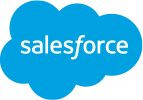
In an era where customer experience defines the success of a business, Salesforce emerged as a game-changer. Founded in 1999 by visionaries Marc Benioff, Parker Harris, Dave Moellenhoff, and Frank Dominguez, Salesforce has etched its name in the annals of business history. Hailing from San Francisco, this American cloud-based software company revolutionized the traditional software model by delivering business applications via the internet.
Salesforce’s flagship offering is its CRM platform, a tool that has redefined how companies interact with their customers. By consolidating customer information and interactions into one unified platform, businesses are able to offer more personalized and efficient service, driving both loyalty and growth. Furthermore, their expansion into enterprise resource planning (ERP) has further solidified their position as an indispensable tool for businesses around the world.
Beyond software, Salesforce’s ethos revolves around its “Ohana” culture, a term borrowed from Hawaiian culture meaning “family.” This inclusive philosophy is evident not only in the company’s internal operations but also in its commitment to philanthropy and social change. As a pioneer in SaaS (Software as a Service), Salesforce’s influence is ubiquitous, and its legacy is that of transforming how businesses connect with their customers in the digital age.
Key Facts
- Founded: Salesforce was founded in 1999 by Marc Benioff, Parker Harris, Dave Moellenhoff, and Frank Dominguez.
- Impact: Salesforce has transformed business operations by providing a platform for customer relationship management (CRM) and enterprise resource planning (ERP).
- Famous Brands/Products: Salesforce’s famous brand/product is Salesforce which is a CRM and ERP platform.
- Website: https://www.salesforce.com
SAP SE
Category: Enterprise software
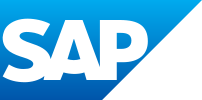
Hailing from Weinheim, Germany, SAP SE stands tall among global software giants. Established in 1972 by a group of forward-thinking IBM engineers, including Dietmar Hopp and Hasso Plattner, SAP’s mission was clear: revolutionize business processes and elevate operational efficiency.
Short for “Systeme, Anwendungen und Produkte in der Datenverarbeitung” (Systems, Applications, and Products in Data Processing), SAP’s enterprise software solutions have become pivotal for businesses around the globe. At the heart of its offering is the enterprise resource planning (ERP) software, which integrates various business processes across departments into a single, unified system. This holistic approach has empowered organizations with real-time data and analytics, enabling them to make informed decisions swiftly.
Beyond ERP, SAP’s portfolio has grown to encompass a wide array of applications related to Advanced Business Application Programming (ABAP), Customer Relationship Management (CRM), Supplier Relationship Management (SRM), and more. Their innovations in cloud computing, machine learning, and the Internet of Things (IoT) continue to shape the landscape of modern business operations.
Key Facts
- Founded: SAP was founded in 1972 by Dietmar Hopp, Hasso Plattner, Claus Wellenreuther, Klaus Tschira, and Claus E. Heinrich.
- Impact: SAP has transformed enterprise operations by providing enterprise resource planning (ERP) software and related applications to manage business operations and customer relations.
- Famous Brands/Products: SAP’s famous brand/product is SAP which is an ERP software and related applications.
- Website: sap.com
Autodesk, Inc.
Category: Software for design & creation

Autodesk, an American software powerhouse established in 1982 by visionaries John Walker and Dan Drake, has left an indelible mark on how industries realize and visualize concepts. Renowned for pioneering computer-aided design (CAD), manufacturing (CAM), and engineering (CAE) tools, Autodesk’s offerings, like the iconic AutoCAD, have transitioned industries from traditional hand-drawn designs to precise digital blueprints.
Venturing beyond just CAD, Autodesk has rolled out an array of specialized tools for diverse sectors. Fusion 360 merges design, engineering, and manufacturing, streamlining the product development process. Meanwhile, Maya, a titan in animation, has been the magic behind cinematic visuals, enabling artists to craft spectacular visual narratives. Through its innovations, Autodesk continually redefines the boundaries of design and creativity.
Key Facts
- Founded: Autodesk was founded in 1982 by John Walker and Dan Drake.
- Impact: Autodesk has revolutionized design and creation by providing a suite of software tools for computer-aided design (CAD), computer-aided manufacturing (CAM), and computer-aided engineering (CAE).
- Famous Brands/Products: Some of Autodesk’s famous brands/products include AutoCAD (computer-aided design (CAD) software), Fusion 360 (integrated 3D CAD, CAM, and CAE software), Maya (3D computer graphics software).
- Website: autodesk.com
OpenAI LP
Category: Artificial intelligence research

OpenAI LLC, founded in 2015 by visionaries like Elon Musk, Sam Altman, and Greg Brockman, among others, stands as a testament to the fusion of ethical AI development and innovation. This American AI research laboratory is steadfast in its mission to ensure that artificial general intelligence (AGI) evolves to be “safe and beneficial.” With a commitment to open research and broad societal benefits, OpenAI sets the gold standard in addressing modern AI challenges.
The company’s groundbreaking innovations, especially the GPT series, have redefined the boundaries of natural language processing, creating systems that produce human-like text with uncanny accuracy. Alongside textual marvels, OpenAI’s ventures like DALL·E, which creates images from textual prompts, and OpenAI Codex, bridging human intent with executable code, exemplify the broad spectrum of its transformative impact on technology and society.

Key Facts
- Founded: OpenAI was founded in 2015 by Elon Musk, Sam Altman, Greg Brockman, Ilya Sutskever, Wojciech Zaremba, and John Schulman.
- Impact: OpenAI has changed the way we approach artificial intelligence by conducting research and developing AI technologies with the goal of advancing and promoting friendly AI. It has developed ChatGPT, an advanced AI language model that can generate human-like text, enabling us to automate tasks such as customer service, content creation, and language translation. It is also working on developing advanced AI capabilities that assist and augment human productivity, transforming tasks and interactions across various industries.
- Famous Brands/Products: Some of OpenAI’s famous brands/products include the GPT series (GPT-1, GPT-2, GPT-3, InstructGPT, GPT-3.5, GPT-4), ChatGPT (a chatbot), DALL·E (an image generator), OpenAI Five (a team of five neural networks that play Dota), and OpenAI Codex (an AI system that translates natural language into code).
- Website: OpenAI.com
So, that was it!
We’ve traveled through a fascinating journey, discovering how these software companies have left their mark on nearly every corner of our world. From the way we chat with our friends, shop for our favorite gadgets, to how businesses grow and operate, these companies have truly reshaped our everyday experiences.
Just think about it: these 25 companies have indeed molded the world in ways we could’ve only dreamed of years ago. Whether it’s making our work easier or keeping us connected with loved ones, the changes brought by these tech giants have woven themselves into the fabric of our daily lives. And it’s not just about now; they’re paving the way for our future too. As technology continues to sprint forward, these companies will be at the forefront, guiding us into new, exciting territories.
So, what can you do? Stay curious! Keep an eye on what’s new in the tech world and always appreciate the magic software companies bring to the table. Because, as we’ve seen, they’re not just changing the way we live—they’re crafting our future. And with these innovators leading the way, it’s a future full of promise and wonder.


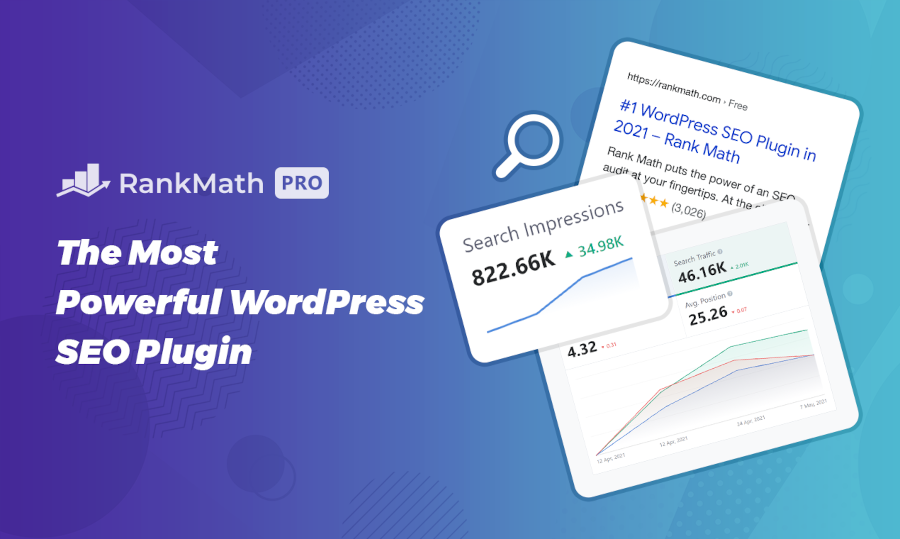

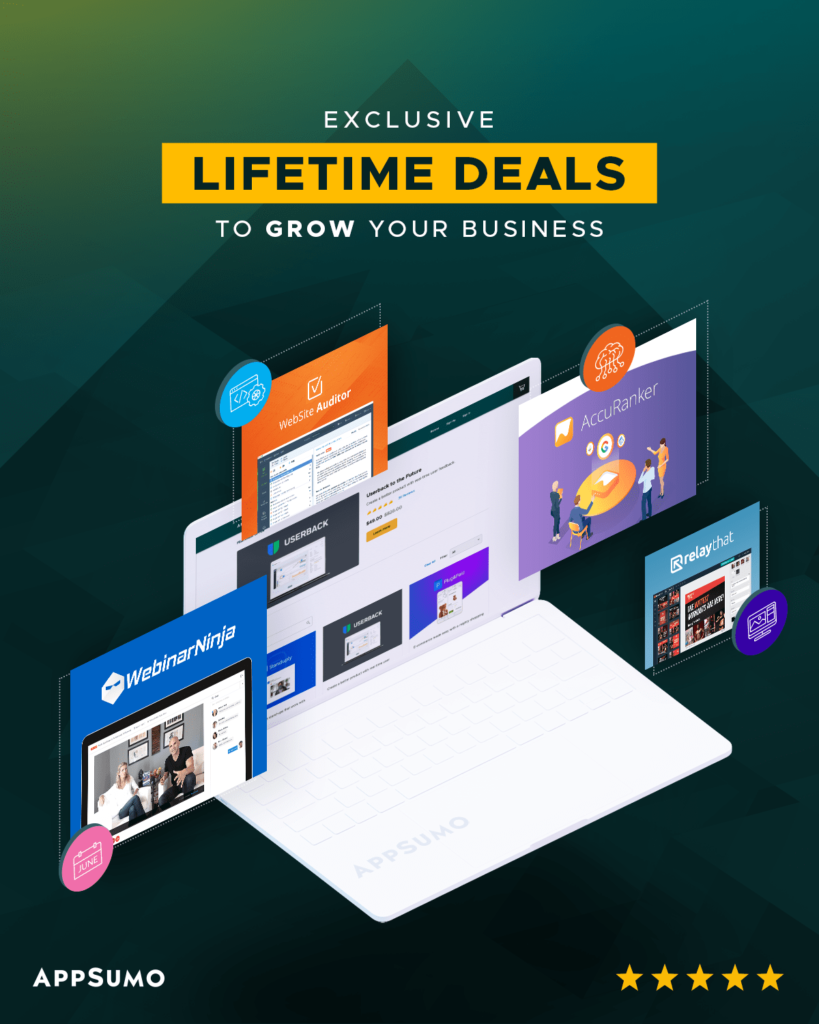
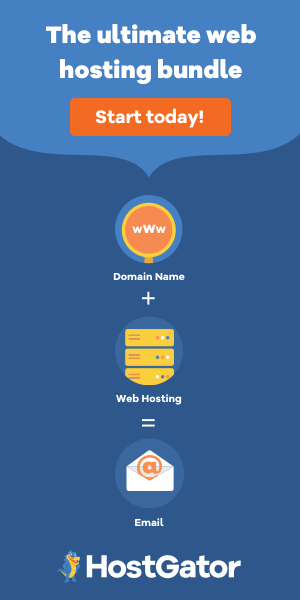


Leave a Reply